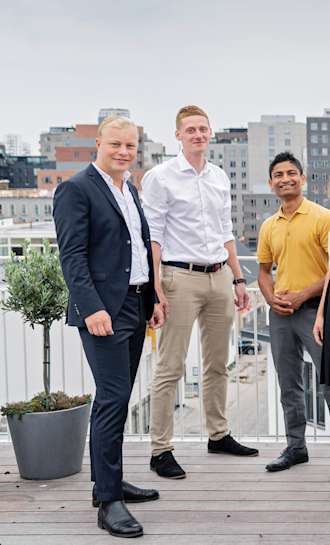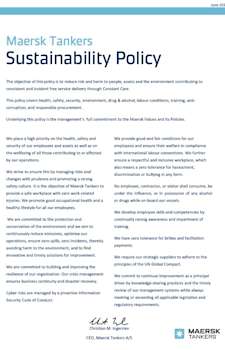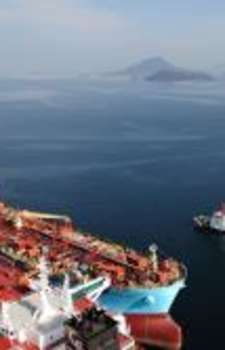Decarbonisation, Responsible business & Diversity, Equity and Inclusion
As a purpose-driven company, we feel a great responsibility to develop and deploy solutions that meet the varied and evolving needs of our partners and the planet. Not only do we put an emphasis on improving how we work as a company, but we actively work towards finding new ways to spearhead a sustainable change in our industry, to ultimately benefit society and the planet. We have, for example, joined the United Nations Global Compact, committing us to align our operations with universal principles on human rights, labour, the environment and anti-corruption. We are committed to the United Nations’ Sustainable Development Goals, and we use our voice to urge stakeholders to focus on important issues like climate change, the fair treatment of workers, and diversity, equity and inclusion.

For the world to meet the goals of the Paris Agreement to tackle climate change, sectors such as shipping must cut their carbon emissions and do so fast.
Shipping, which transports about 90% of world trade, accounts for nearly 3% of the world’s CO2 emissions. This creates a need for next-generation shipping and an increasing demand for solutions that help move energy products at sea with greater efficiency and lower environmental impact.
As a global company that manages a large fleet of tanker vessels and cargoes for shipowners and energy companies, we have an obligation and a commitment to invest in, develop and deploy solutions that ensure we, as an industry, get zero-emission vessels on the water. Thus, we are helping our partners navigate, drive and invent the green transition.
We have, for example, trialled the use of wind propulsion technology on a tanker vessel; harnessed data in digital solutions such as SimTanker; and with Njord, our team is cleverly combining existing and new tech, tailor-made for every vessel, to shrink emissions.
We are also active members of organisations such as the Global Maritime Forum where we are pushing for and contributing to a sustainable change in our industry.

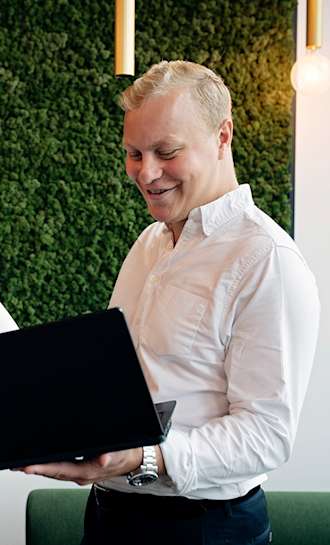
The shipping industry is by its very nature global with multiple stakeholders, which means its activities have an impact on people and the planet. We therefore have a responsibility to consider and act on the ethical, social, environmental and economic implications of the way we conduct our business.
A critical matter in today’s business environment is, helping our partners and the company manage sanctions. A team of legal experts continually monitor geopolitical developments, so we can act fast and make the necessary changes in our operations when sanctions are introduced or change. The team is also analysing and screening activities, parties and countries to ensure adherence to applicable sanctions regimes.
As a company, we also take measures to eliminate corruption, which undermines social and economic development in society and destabilises business. We have a zero-tolerance stand on corruption of any kind. We are a member of the Maritime Anti-Corruption Network (MACN); we work with anti-corruption organisations; and our expectations of employees, who must undergo mandatory anti-corruption training, are expressed in a code of conduct.
Another example is our work towards ensuring our large number of suppliers conduct business responsibly in accordance with international and our own company standards, as detailed in our third-party Code of Conduct. As part of this, we are taking measures to make our supply chain more sustainable, asking suppliers to meet social and environmental requirements. Increasingly, our procurement contracts also reflect environmental concerns as we try to reduce the supply chain’s carbon footprint.

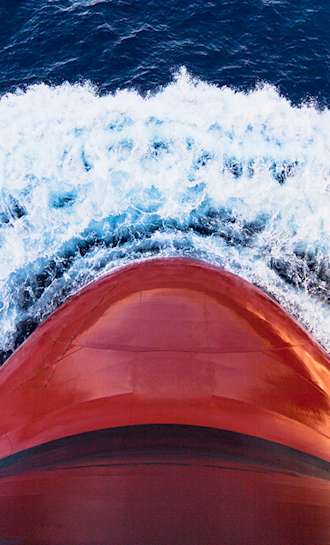
We are committed to building a diverse organisation where employees, regardless of their gender, ethnicity, experience, religion, sexual orientation and age, can thrive, develop and feel a sense of belonging. We believe this is the right thing to do. It also mirrors the diverse and global world we operate in, and it is a catalyst for the innovation shipping needs to find new solutions to complex problems such as climate change.
Diversity thrives in many forms in shipping, as it does at Maersk Tankers, where we employ 300 employees from 30 different nationalities with various ages, cultures, experience, etc.
We have more work to do to raise diversity, equity and inclusion in our organisation and across our industry. We are unstinting in our efforts, which include diverse hiring; building a diverse talent pipeline; creating an environment where a diverse group of employees can thrive; and creating awareness externally on the need for diversity, equity and inclusion.
